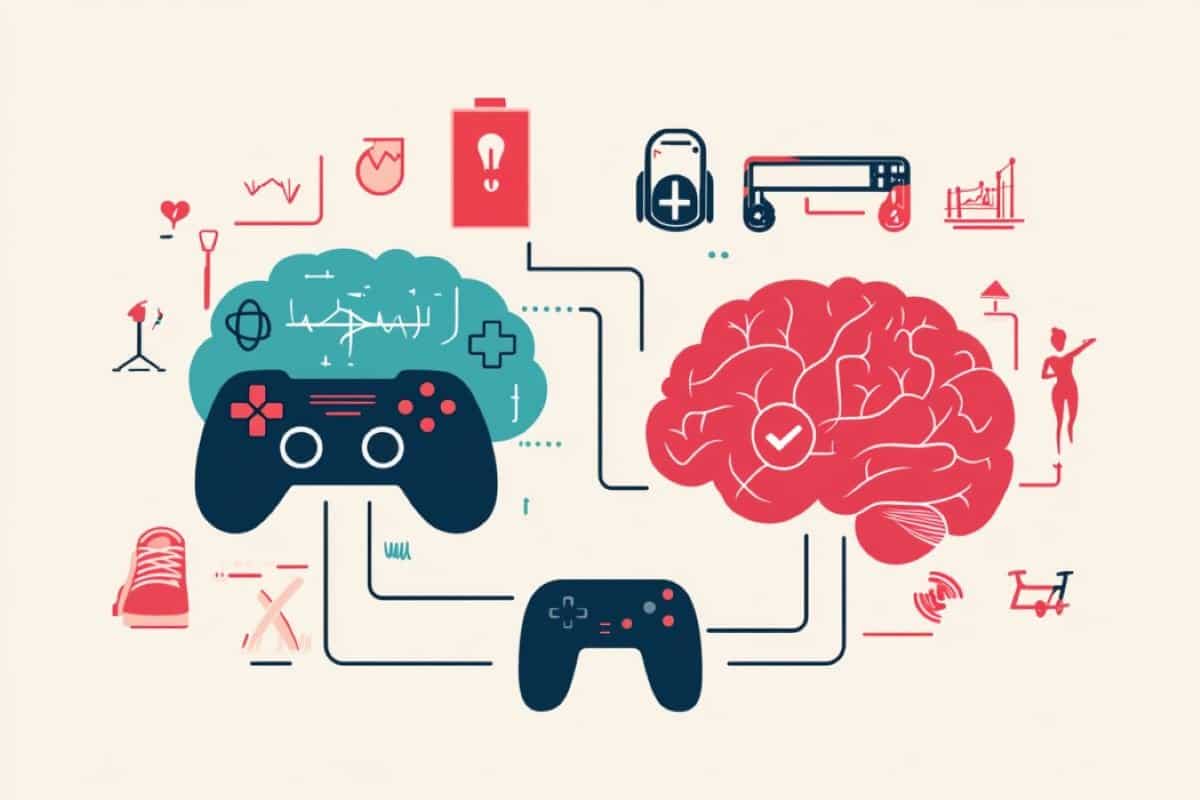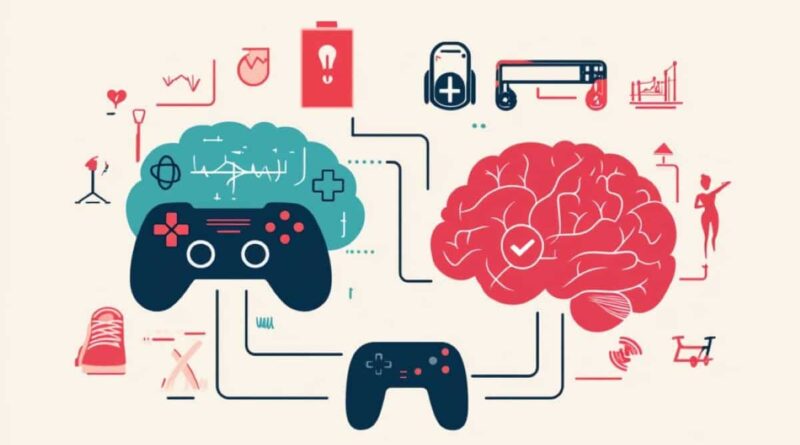Video Games Boost Cognition, Exercise Improves Mental Health – Neuroscience News
Summary: A large study found that playing video games improves cognitive ability, but has no impact on mental health, while exercise improves mental health without affecting cognition. More than 1,000 participants completed psychological tests after playing video games and completing lifestyle assessments.
The results showed that the players often played mentally like people aged 13.7 years and less, while people who met the WHO exercise guidelines were more likely to report lower anxiety and depression. This study provides important information about the different ways video game and exercise influence mental health and psychological well-being.
Important information:
- Frequent video game play improved cognition but did not affect mental health.
- Exercise improved mental health but had no effect on cognitive function.
- Players play with the mentality of people 13.7 years younger on average.
Source: University of Western Ontario
Playing video games can boost your cognitive abilities, and exercise can play a role in improving mental health, but not the other way around, a large study has found.
The surprising findings are part of the Brain and Body study, a collaboration between Western University and the Museum of Science and Industry for the Manchester Science Festival. The first comparison of the work is published by PsyArXiv.
More than 2,000 participants from all over the world signed up for the study, which asked them to complete a lifestyle survey followed by Creyos online brain games that accurately measure various aspects of cognition, such as memory, attention, reasoning and communication skills.

This study, led by the famous Western neuroscientist Adrian Owen, showed that among about 1,000 people who completed all tasks, playing video games had a positive effect on human cognition, but it doesn’t seem to affect their mental health.
Exercising more than 150 minutes per week, according to the guidelines of the World Health Organization (WHO), however, was seen to improve mental health but had no effect on cognition.
“Playing video games was associated with better cognitive ability but not with poor or poor mental health, while more physical activity was associated with better mental health but not physical health. the good or the bad of the mind,” said Owen, a professor of psychology and graphics at Schulich West. School of Medicine and Dentistry.
According to the results of the study, people who frequently played video games (five hours or more per week for one type of game) performed mentally, on average, like people who were younger for 13.7 years. People who played video games regularly (less than 5 hours per week across all types of games) were 5.2 years younger.
In terms of mental health, participants who met or exceeded the WHO recommendation of 150 minutes of physical activity per week were 12% more likely to report no symptoms of depression and 9% more than no anxiety symptoms.
The data also suggest that this difference in mental health was not driven by people being more depressed or anxious in the study; instead, exercise made a significant difference in the lower end of both scales where symptoms were mild or absent.
Brain-body connection
Despite seemingly obvious examples of the brain-body connection, such as the “hangry” pathway that affects the ability to concentrate, stress causes muscles to tense up or steady breathing to calm down mind, little is understood about how the brain and body are related.
Completing the survey helped the West team build a better understanding of how lifestyle is related to the long-term health of our brain.
“The results of this study can help all of us choose activities that promote healthy cognitive aging,” Owen said.
The findings will be presented by Owen at the Museum of Science and Industry on Oct. 19 as part of the Manchester Science Festival, from Oct.18 to 27. Visitors to the festival will also have the opportunity to take part in the flight. learn from these results.
Although the online survey focused on long-term results, the Western team will invite partygoers to help them in a pilot study to evaluate the short-term improvement in cognition due to exercise and sports.
Owen will also provide an explanation of how the brain processes sound and light in an art commission for the festival by the Squidsoup team. Inspired by the work of Piet Mondrian, “State of Mind” is a three-dimensional arrangement of LED lights in an interesting and informative tone.
About this research issues in psychology and mental health
Author: Jeff Renaud
Source: University of Western Ontario
Contact: Jeff Renaud – University of Western Ontario
Image: Image credited to Neuroscience News
Basic research: Road closed.
“Developing the Physical and Cognitive Benefits of Exercise and Video Game Play: A Brain-Body Study” by Conor J Wild et al. PsyArXiv
Summary
Determining the Physical and Cognitive Benefits of Exercise and Video Gaming: A Brain-Body Study.
Two of the most studied lifestyle factors, exercise and video gaming, are consistently considered simple and effective ways to improve brain function and/or protect against brain-related decline. age.
However, some important ongoing questions and methodological inconsistencies leave it unclear which aspects of brain health are affected by exercise and video games, if any.
In a worldwide survey of over 1000 people, we collected data on participants’ physical activity, time spent playing video games, mental health, and cognitive performance using tests of short memory span, verbal ability and reasoning skills from the Creyos battery. .
The amount of regular exercise was not significantly related to any measure of cognitive function; however, more physical activity was associated with better mental health as demonstrated using the PHQ-2 and GAD-2 screeners for depression and anxiety.
On the other hand, we found that more time spent playing video games was associated with better cognitive performance but not with better mental health.
We conclude that exercise and video games have different effects on the brain, which can help people change their lifestyle choices to promote mental and physical health, respectively, across the lifespan.
#Video #Games #Boost #Cognition #Exercise #Improves #Mental #Health #Neuroscience #News

